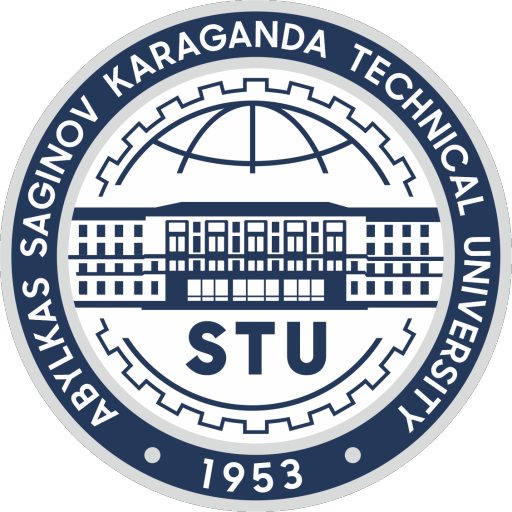“Postgraduate education: Master’s degree”
Requirements to the content of education.
Working curriculum is developed for the academic year on the basis of the specialty programs of the specialty and IUP of undergraduates and is approved by the head of the educational organization on the basis of the decision of the academic council.
Working curriculum defines the list of disciplines for the academic year and their laboriousness in credits, the order of study, types of studies and forms of control, as well as other types of educational activities (practice, research work of a master’s degree, experimental research work of a master’s degree, a comprehensive exam, design and defense of a master’s thesis.
Working curriculum serves as the basis for compiling class schedules and calculating the labor intensity of teaching activity.
An individual work plan of the masters is drawn up for the entire period of study and includes the following sections:
1) individual curriculum (if necessary, it may be updated annually);
2) research / experimental research (topic, research direction, deadlines and reporting form);
3) practice (program, base, deadlines and reporting form);
4) topic of the master’s thesis with the rationale and structure;
5) master’s thesis execution plan;
6) plan of scientific publications, internships.
Requirements for the scientific-research work of master:
Research work in scientific and pedagogical magistracy must:
1) to comply with the main issues of specialty, for which the master’s thesis is defended;
2) be relevant, contain scientific novelty and practical significance;
3) be based on modern theoretical, methodological and technological achievements of science and practice;
4) performed using modern research methods;
5) contain research (methodological, practical) sections on the main protected provisions;
6) based on international best practices in the relevant field of knowledge.
Requirements for the experimental research work of a master:
Experimental research of profile master must:
1) to comply with the main issues of the specialty, for which the master’s thesis is defended;
2) be based on modern achievements of science, technology and production and contain specific practical recommendations, independent solutions of managerial tasks;
3) performed using advanced information technologies;
4) contain experimental research (methodological, practical) sections on the main protected topics.
The results of scientific or experimental research at the end of each period of their passage are provided by master in the form of a report.
Within the framework of the research work of a master’s degree, experimental research work of a master’s degree the individual work plan provides for the obligatory passage of foreign scientific internships.
Master’s thesis must be checked for plagiarism, the rules and procedures which are defined by the institution on its own .
During two months after admitted, each master is assigned a supervisor to guide the master’s thesis.
Supervisor and thesis topic on the basis of the decision of the Academic Council are approved by the Rector of the University.
Master’s supervisor must have a degree and are actively engaged in research in this branch of Science (majoring in teaching masters). If necessary, can be appointed scientific advisers in the related fields of science.
Requirements for key competencies of graduates of scientific and pedagogical magistracy:
Must:
– have an idea about
– the role of science and education in public life;
– current trends in the development of scientific knowledge;
– current methodological and philosophical problems of natural (social, humanitarian, economic) sciences;
– on the professional competence of a higher education teacher;
– the contradictions and socio-economic consequences of globalization processes.
2) to know:
– methodology of scientific knowledge;
– principles and structure of the organization of scientific activity;
– psychology of students’ cognitive activity in the learning process;
– psychological methods and means of improving the effectiveness and quality of education.
3) be able to:
– use gained knowledge for the original development and application of ideas in the context of scientific research;
– critically analyze existing concepts, theories and approaches to the analysis of processes and phenomena;
– integrate gained knowledge in various disciplines to solve research problems in new unfamiliar conditions;
– by integrating knowledge, make judgments and make decisions based on incomplete or limited information;
– apply knowledge of pedagogy and psychology of higher education in their teaching activities;
– use interactive teaching methods;
– carry out information-analytical and information-bibliographic work with the involvement of modern information technologies;
– think creatively and creatively solve new problems and situations;
– be fluent in a foreign language at a professional level, allowing to conduct research and teach special subjects in universities;
– summarize the results of research and analytical work in the form of a thesis, scientific article, report, analytical note.
4) have skills:
– to research, solve standard scientific tasks;
– the implementation of educational and pedagogical activities on the credit technology of education;
– methods of teaching professional subjects;
– use of modern information technology in the educational process;
– professional communication and intercultural communication;
– oratory, correct and logical design of their thoughts in oral and written form;
– expanding and deepening the knowledge necessary for everyday professional activities and continuing education in doctoral studies.
5) be competent:
– in the field of research methodology;
– in the field of scientific and educational activities in higher education;
– in matters of modern educational technologies;
– in the implementation of research projects and research in the professional field;
– in ways to ensure continuous updating of knowledge, expansion of professional skills and abilities.
Special competences are developed separately for each specialty of magistracy, taking into account the requirements of employers and the social needs of society.
